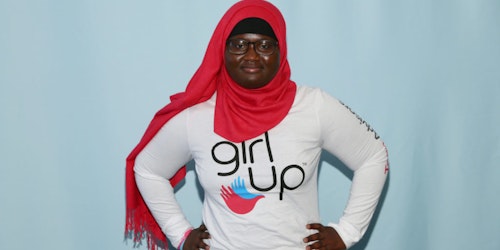(TW: sexual assault, rape culture)
In this case activism led to a major change – and it started with two girls and a black tape roll.
Year after year I have the time of my life during the 5 days of Carnival: the most famous Brazilian festivity gathers millions of people, wearing the funniest costumes you can imagine in the streets of Rio, São Paulo, Recife, Salvador and hundreds of other cities. We’re all guardians of the golden rule: dance like there’s no tomorrow! Unfortunately, this very same mood that makes it so incredibly fun sometimes puts women and girls at risk.
Crowds in the street and high amounts of alcohol translate every year into peaks in cases of street harassment and assault, showing how strong is the misconception that the mere presence of women in street Carnival is in itself a form of consent.
The advertising industry doesn’t help. If using the female body to sell is a worldwide cliche, Brazilian Carnival takes the trend to a whole new level. Ambev, the country’s largest beverage company, which includes Skol, plays a role in strengthening the idea that women are objects.
Aware of that, young feminists Priscilla Ferrari and Mila Alves decided they had to do something when, in 2015, they saw a Carnival street advertising from Skol with the sentence “I forgot my ‘no’ at home.” Using black tape, the two added the words “and brought my ‘never’,” to the add and shared a picture on Facebook.
BANG! In a couple of days over 7,000 people shared their post, and what started as a personal protest from two friends became an online battlefield against Skol and rape culture.
The discussion went on fire on social networks and mainstream media, and fingers were pointed at Skol’s part on supporting rape culture.

In a few days, Skol replaced all outdoor ads, from all over the country. The new ones had messages of respect for women during the five-days party. The company also published an apologetic note – and that’s not common for companies in Brazil! We’re used to these backlashes going cold and ending in no real change, but since the crisis Skol has shown they really learned their lesson.
In 2017, the beer launched a Carnival campaign called “reposter”. “These images are part of our past,” states the campaign video, along with images of semi-nude blond girls selling beer in dozens of posters. Six women illustrators were invited to redesign ads that, in the brand’s own words, “doesn’t represent us anymore”. From the support to women artists to the acknowledgement of their mistakes, the campaign indicated that Skol was doing its best to change the role of women on its ads.
After that, the brand had transgender singer Pablo Vittar as cover girl and has launched a special edition of coloured cans to celebrate Brazilian diversity, among other actions that show a significant change in their branding since the crisis of 2015.
The role of advertising in promoting social changes is of course limited, but its power cannot be denied. In this case activism led to a major change – and it started with two girls and a black tape roll.
Um rolo de fita isolante: a mudança pode ser simples assim!
Todos os anos a mais famosa festividade brasileira reúne milhões de pessoas nas ruas com as fantasias mais engraçadas e criativas que se pode imaginar (o melhor do Brasil é realmente o brasileiro!). Somos todos guardiões da regra de ouro: dance como se não houvesse amanhã! Infelizmente, esse mesmo clima que torna o Carnaval tão incrivelmente divertido também coloca mulheres e meninas em risco.
Multidões na rua e consumo intenso de álcool traduzem-se todos os anos em picos nos casos de assédio nas ruas e estupros, mostrando quão forte é a crença de que a mera presença de mulheres no Carnaval de rua é por si só uma forma de consentimento.
A indústria da publicidade não ajuda. Se usar o corpo feminino para vender é um clichê mundial, o Carnaval brasileiro leva a tendência a um outro patamar. A Ambev, maior empresa de bebidas do país, detém 26 marcas de cerveja – incluindo a líder Skol – e desempenha um papel histórico no fortalecimento da ideia de que mulheres são objetos.
Cientes disso, as jovens feministas Priscilla Ferrari e Mila Alves decidiram que tinham que fazer algo quando, em 2015, viram um outdoor de Carnaval da Skol com a frase “esqueci o ‘não’ em casa”. Usando fita preta, as duas acrescentaram as palavras “e trouxe o ‘nunca’” ao anúncio e compartilharam uma foto no Facebook. Que tiro! Em poucos dias, mais de 7 mil pessoas compartilharam o post, e o que começou como um protesto pessoal de duas amigas se tornou um campo de batalha virtual contra a Skol.
A discussão pegou fogo nas redes sociais e na grande mídia, e as acusações de que a Skol estaria contribuindo para fortalecer a cultura do estupro foram tão contundentes que a marca não pode ignorá-las.
Em alguns dias, todos os anúncios da campanha foram substituídos, no Brasil todo. Os outdoors novos traziam frases que pretendiam estimular o respeito pelas mulheres durante os cinco dias de festa. A empresa também publicou uma nota de desculpas – e nós sabemos como isso é raro no Brasil! Normalmente, histórias como essa simplesmente esfriam até perder totalmente a força, e nenhuma mudança real acontece, mas, desde a crise, a Skol mostrou que realmente aprendeu a lição.
Em 2017, a cerveja lançou uma campanha de carnaval chamada “reposter”. “Essas imagens fazem parte do nosso passado”, afirma o vídeo da campanha, mostrando imagens de garotas








